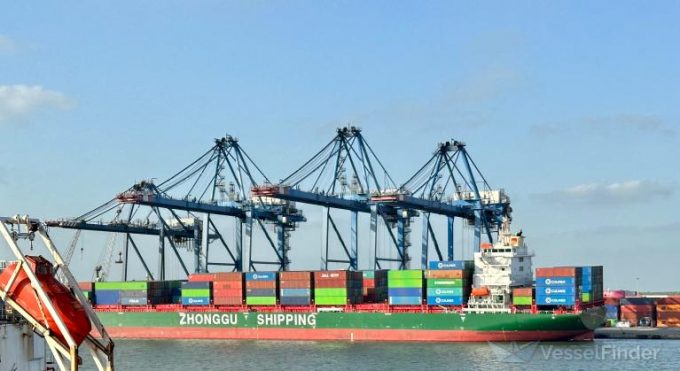Maersk assures shareholders arms shipments 'comply with regulations'
A Maersk shareholder proposal regarding transportation of arms to Israel was not adopted in today’s ...

Smaller shipping lines are continuing to operate in the Red Sea, despite a major attack by Houthis last night.
The US military reported that it and partners shot down 18 attack drones, two anti-ship cruise missiles and one anti-ship ballistic missile. There was no damage to ships or injuries to crew.
Four containerships were entering the danger zone this morning and another six under way, according to AIS data. Analyst Lars Jensen indicated that CMA CGM ships and the Maersk Atlanta may ...
Maersk Air Cargo sees volumes fall as it aims for 'margin in favour of revenue'
Keep our news independent, by supporting The Loadstar
Container spot rates diverge: to Europe still falling, but firmer to the US
Volume surge and an early peak season? 'Don't celebrate too soon,' warning
Hapag-Lloyd won't take bookings if port congestion leaves cargo stranded
Ecommerce likely the front-runner in resurge of transpacific trade after deal
China-US trade tariff pause could drive a rebound for transpacific rates
Airfreight players eye new routes as demand on the transpacific nosedives
Service chaos from trade ban with India a problem for Pakistan shippers
Airfreight rates ex-China 'loss-making', but hopes of a trade deal stay high
Serious threat to jobs in US logistics as tariffs cause economic 'stagflation'
Carriers impose 'emergency operation' surcharges on Pakistan cargo
15% rebate for box ships as Suez Canal Authority woos carriers
White House u-turns see freighters flying but keep logistics players on their toes
APMM floats along on 'solid' Q1 profitability in Ocean, well prepared for choppy water
MSC in terminal switch as Nhava Sheva gets strong start to new fiscal year

Comment on this article